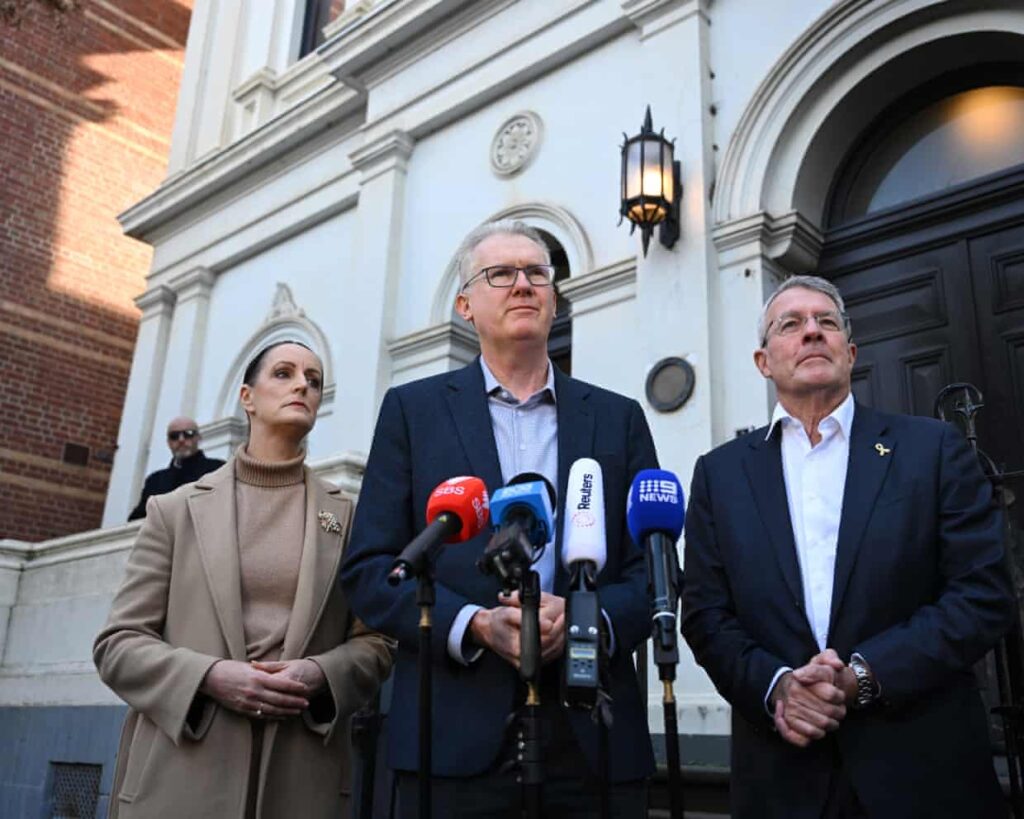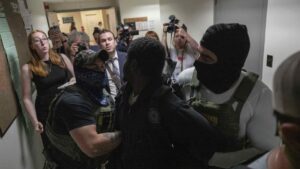
In a stark reminder of the persistent threat of antisemitism, a fire at a Melbourne synagogue has been labeled by Tony Burke, a senior Australian politician, as an “attack on Australia.” The incident, which led to the arrest of a New South Wales man, underscores the ongoing challenges in combating hate crimes across the nation.
The fire, which occurred earlier this week, has prompted widespread condemnation from political leaders and the community alike. Tony Burke, a prominent figure in the Labor Party, emphasized the collective responsibility in eradicating antisemitism, stating, “The job of making sure it is eliminated belongs to every single one of us.”
Details of the Incident
The fire broke out at a synagogue in Melbourne, causing significant damage but fortunately resulting in no casualties. Authorities swiftly identified and charged a suspect from New South Wales, highlighting the interstate nature of the investigation and the broader implications of such acts of hate.
This development follows a series of concerning incidents targeting religious communities in Australia. The police have been vigilant in their response, yet the recurrence of such events raises questions about the effectiveness of current measures to prevent hate crimes.
Political and Community Reactions
In the wake of the attack, political leaders across Australia have united in their condemnation. Tony Burke’s comments reflect a broader sentiment within the government and society that antisemitism must be addressed decisively. “This is not just an attack on a place of worship; it’s an attack on the values we hold dear as Australians,” Burke asserted.
Community leaders have echoed these sentiments, calling for increased education and awareness to combat prejudice. The Australian Jewish community, in particular, has expressed both gratitude for the swift action taken by law enforcement and concern over the rise in antisemitic incidents.
Historical Context and Current Efforts
Antisemitism is not a new issue in Australia, but recent years have seen a troubling increase in reported incidents. According to a report by the Executive Council of Australian Jewry, antisemitic incidents rose by 10% in the past year alone. This statistic underscores the urgent need for comprehensive strategies to address the root causes of such hatred.
“Antisemitic incidents rose by 10% in the past year alone,” according to the Executive Council of Australian Jewry.
The Labor Party, along with other political entities, has been actively working to implement policies aimed at curbing hate speech and promoting inclusivity. However, as Burke highlighted, the responsibility does not rest solely with the government. “It belongs to every single one of us,” he reiterated, calling for a societal shift towards greater tolerance and understanding.
Looking Forward: Strategies and Solutions
Experts in social cohesion and security stress the importance of a multi-faceted approach to combating antisemitism. This includes not only legislative measures but also community engagement and education initiatives. Dr. Sarah Goldstein, a leading expert in hate crime prevention, suggests that “education is key to dismantling stereotypes and fostering a more inclusive society.”
Meanwhile, the government is exploring additional security measures for religious sites and increasing funding for community programs aimed at promoting diversity and inclusion. These efforts are part of a broader strategy to ensure that all Australians feel safe and respected, regardless of their religious or cultural background.
The Melbourne synagogue fire serves as a wake-up call for Australia, reminding citizens and leaders alike of the ongoing battle against hate. As the nation grapples with this incident, the focus remains on unity and proactive measures to prevent future occurrences.
As the investigation continues, the community’s resilience and commitment to combating antisemitism will be crucial in shaping a more inclusive and harmonious future for all Australians.






